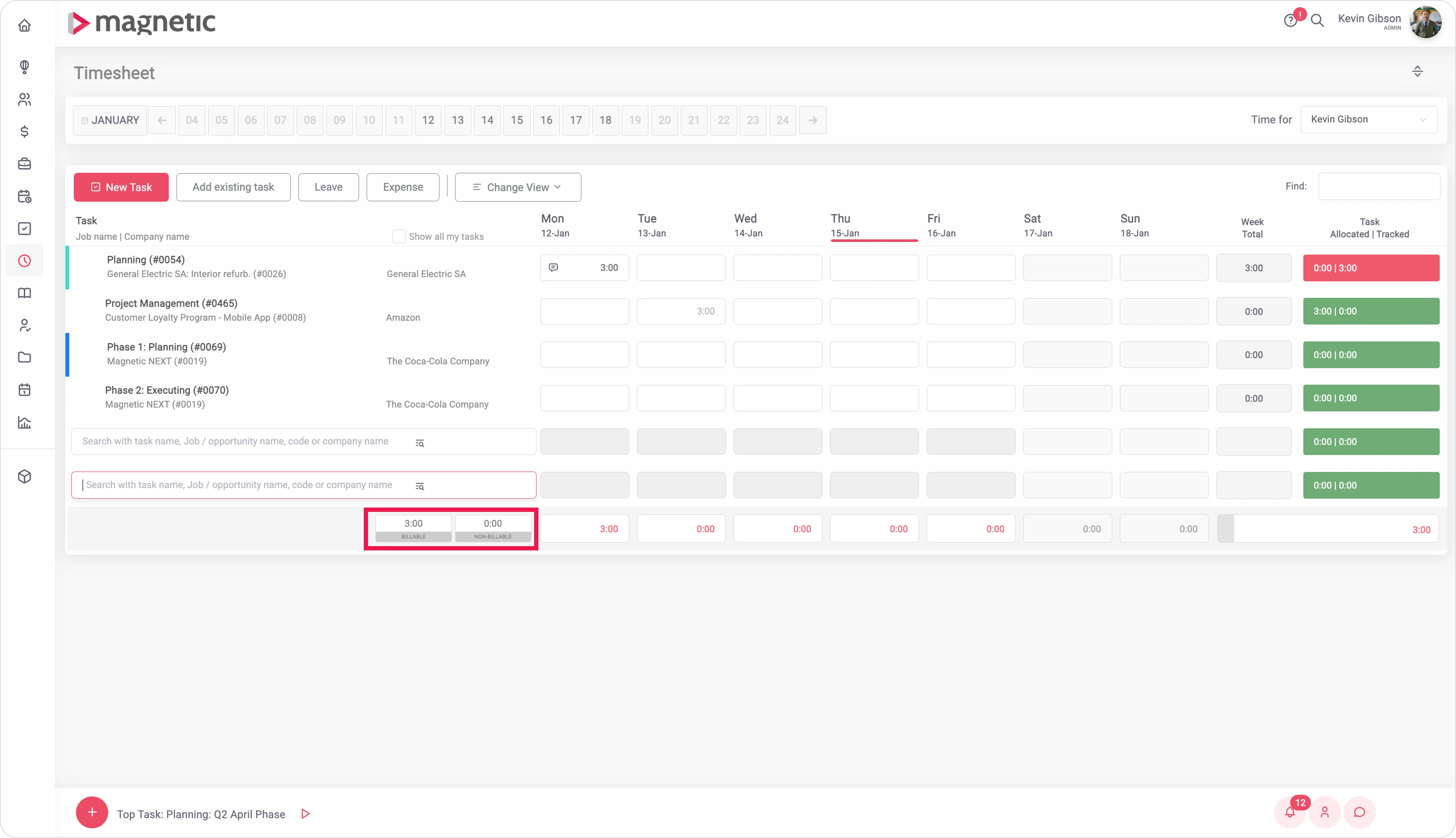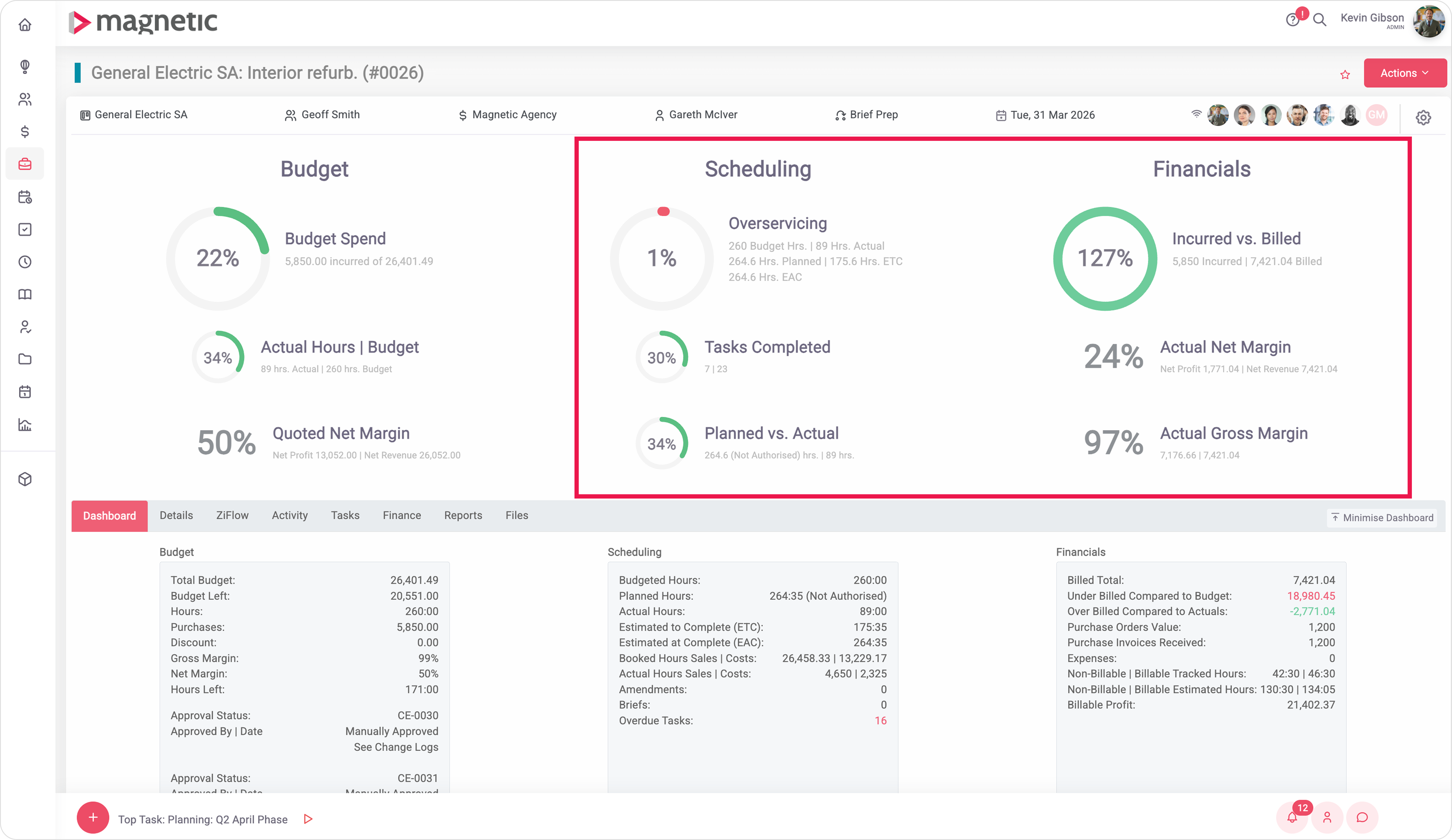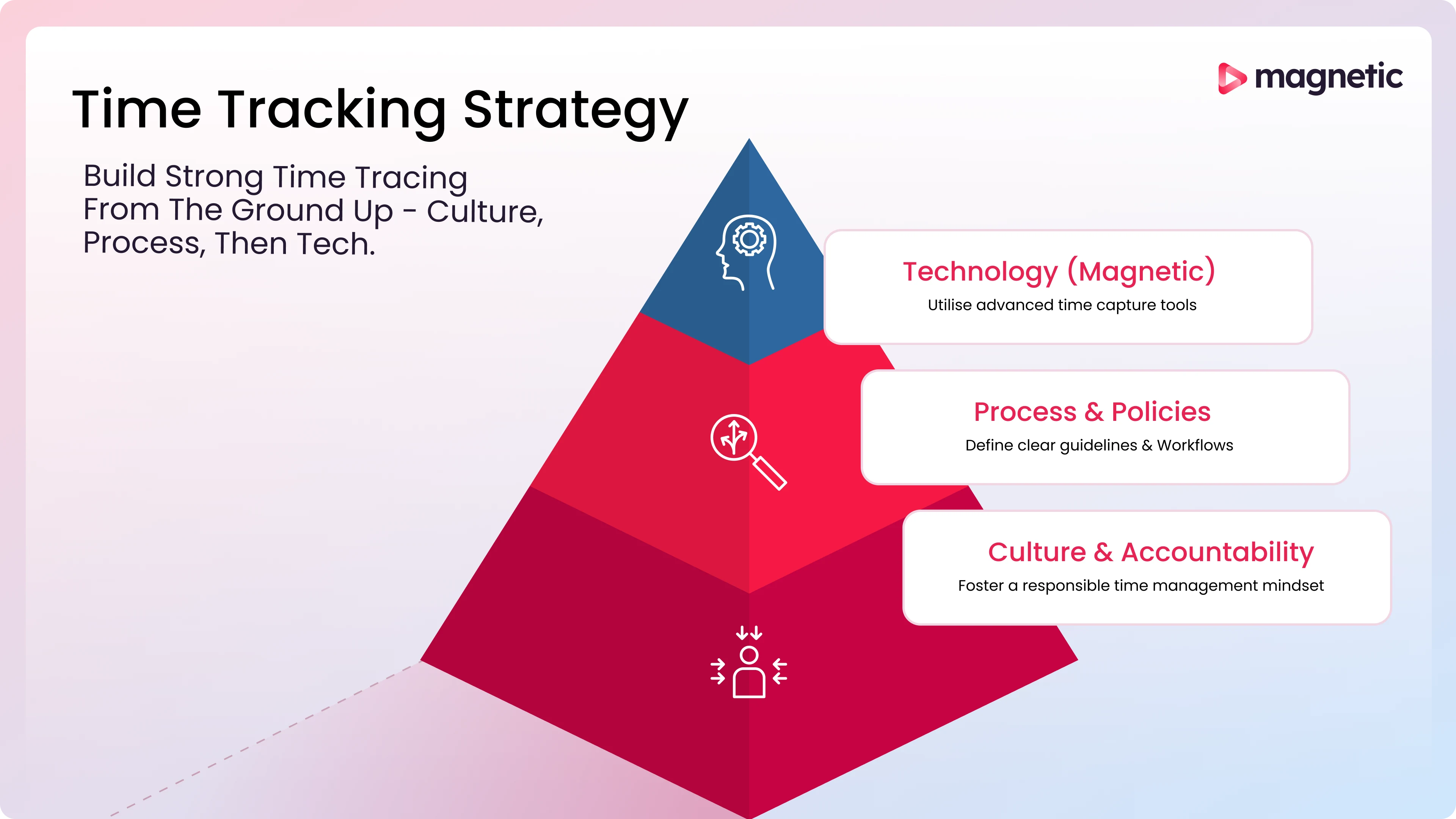

Time leakage refers to billable hours that are worked but never recorded or invoiced. It is the silent profit killer that chips away at cashflow and skews your most critical cost estimates. Whether its a forgotten client meeting or vague admin, these untracked moments refer to earned value that never makes it to the bottom line. In many professional services firms these untracked moments - missed meetings, forgotten tasks, vague time entries - slowly chip away at your cash flow, skew your cost estimates, and make it harder to scale. In fact a recent study suggests that over 21% of billable hours can end up unbilled on average, when time is not tracked correctly.
Whether you're a consulting firm, creative agency, engineering group or accountancy practice, understanding and addressing time leakage is essential for sustaining profitability and operational clarity.
This guide breaks down how to spot time leakage and what you can do to fix it. We’ll examine its financial impact, trace its root causes, and provide actionable strategies - from improved processes to intelligent software like Magnetic to help your team recapture lost time and unlock untapped revenue.
Consider a professional billing £80/hour who loses just 6 unbilled hours a week. Over a year, that's more than £24,000 in missed revenue per person. Multiplied across teams, the cost becomes exponential. Every unlogged hour is value your team earned, but your business never sees.
When time isn’t logged, invoices get delayed and your numbers start giving you a false sense of how well things are going. Unbilled time appears as an asset on paper, but it doesn't pay the bills. Without prompt billing, cash flow tightens, making it harder to reinvest in talent, tools, or growth.
If your time data isn’t accurate, you’ll end up underpricing future projects, misusing your team, and silently eating the cost of extra work. This undermines profitability and puts pressure on delivery teams.
Inaccurate tracking obscures who is overworked, who is underutilised, and where capacity exists. Without this insight, resourcing decisions are reactive rather than strategic.
Vague or inaccurate time logs frustrate clients. Without clear breakdowns, they may question invoices, delaying payments or eroding trust.
Time leakage hinders your ability to forecast revenue, assess project performance, and plan effectively. Firms that can’t measure time accurately fall behind competitors who can.
Time leakage isn’t caused by one big issue- it’s the result of dozens of small, often overlooked habits and systems. From how your team logs time, to how you manage scope, to the tools you rely on daily, it all adds up. Below, we break down the most common culprits across teams and workflows.
Time leakage often builds up in the background through small habits, loose processes, and gaps in your tools. Addressing it means being intentional across how your team works and how your systems support them. The strategies below focus on both areas: the day-to-day practices that keep time on track, and the technology that helps make it easier.
Fixing time leakage is about removing the points where time gets lost - meetings, tools, approvals and invoices.
This is where purpose-built timesheet software like Magnetic play a critical role. Instead of acting like a standalone time tracker and place to record time spent on tasks, Magnetic embeds time tracking directly into the workflows professional service firms already use. Here's a look at how modern time capture technology closes core time leakage gaps:
One of the biggest culprits of time leakage is retrospective logging and over reliances on people to remember what they worked on hours, days and weeks later. Magnetic reduces this risk, but supporting real-time time entry so work is tracked as it happens and retrospectively.

Magnetic enforces structured time capture without making it painful for teams:
Disconnected systems are one of the most expensive sources of leakage. Errors and delays are inevitable when time lives in one tool and invoicing in another.
Magnetic connects time tracking directly to financial outcomes:
Instead of time being reported on monthly, it becomes an active input into strategic decision making.

Most professional service firms understand they're losing time, but few can say "where" or "why".
Magnetics in depth reporting highlights patterns that would otherwise stay hidden:
This turns time tracking from a compliance requirement into a diagnostic tool
Even the best time tracking system won’t make an impact if your team doesn’t buy in. Resistance often comes from a lack of clarity, poor experiences with clunky tools, or fears about being micromanaged. To build lasting habits, you need to create trust, make the process easy, and explain why it matters. Here’s how to approach it.

Once you’ve addressed time leakage, the next step is keeping it under control. That means tracking the right metrics, checking in regularly, and giving your team the support they need to improve over time. Use the KPIs below to measure progress and the practices that follow to stay on track.
Recapturing lost time requires putting a foundation in place for sustainable growth. When every hour worked is accounted for, professional service firms get the clarity they need to review project profitability and accurately forecast resource needs, providing a data-backed approach that allows strategic reinvestment in your people.
By implementing smart, integrated systems you turn a leaky bucket into a high performance engine.
If you could reclaim £24,000 per employee today, where would it take your firm tomorrow?
Start tracking time with purpose and precision and turn every hour worked into an hour that makes it into an invoice. See how Magnetic can help - book a quick walkthrough or try it free for 14 days.
Time leakage refers to billable work that is performed but not logged or invoiced. It includes missed tasks, vague timesheet entries, and forgotten micro-activities, ultimately resulting in lost revenue and inaccurate financial data.
.svg)
Even small instances of untracked time can snowball into thousands in lost revenue. Beyond the financial cost, time leakage affects project costing, billing accuracy, resourcing, forecasting, and client trust.
.svg)
Common causes of time leakage include: Retrospective or vague time logging | Manual tracking systems (like spreadsheets)| Unbilled scope creep | Poor clarity around billable vs. non-billable time | Cultural resistance to detailed tracking
.svg)
Key strategies include: Implementing clear time tracking policies | Proactively managing scope changes | Automating time capture with tools like Magnetic | Training staff and reinforcing accountability | Integrating timesheets with finance and project management systems
.svg)
Look for: Real-time or passive time tracking | Smart entry suggestions based on calendar or app usage | Mobile-friendly timesheet tools | Automated reminders and approval workflows | Dashboards for utilisation and leakage insights
.svg)
Tips that work: Explain the purpose: fair pay, project clarity, and workload balance | Lead by example with leadership logging time consistently | Choose easy-to-use, non-invasive tools | Provide training with real use cases | Be transparent - avoid micro-management approaches